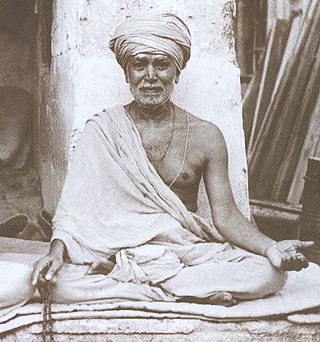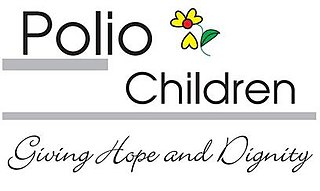Related Research Articles

WaterAid is an international non-governmental organization, focused on water, sanitation and hygiene. It was set up in 1981 as a response to the UN International Drinking Water decade (1981–1990). As of 2018, it was operating in 34 countries.

Dadaab is a semi-arid town in Garissa County, Kenya. It is the site of a UNHCR base hosting 302,805 registered refugees and asylum seekers as of 31 October 2023, in four camps, making it one of the largest in the world behind Kutupalong refugee camp. The centre is run by the United Nations High Commissioner for Refugees, and its operations are financed by foreign donors. In 2013, UNHCR, the governments of Kenya and Somalia signed a tripartite agreement facilitating the repatriation of Somali refugees at the complex.
Children International is a global nonprofit humanitarian organization that helps children break the cycle of poverty. It addresses children’s critical needs through early intervention and regular interaction in community centers. The goal is to help children overcome the effects of poverty, support their education, and prepare youth to contribute to society.
Project Mercy, Inc. is a Christian, non profit organization located in Yetebon, Ethiopia, founded in 1977 by Marta Gabre-Tsadick and Deme Tekle-Wold. Over the past 18 years, Project Mercy's original mission has been expanded to include community development and self-help programs.
CARE Australia is an Australian, not-for-profit, secular humanitarian aid agency assisting in disaster relief efforts and addressing the causes of global poverty in developing countries. It is one of a confederation of 12 national members of CARE International, forming one of the world’s largest international emergency aid and development assistance organisations. It was founded in 1987 by former Prime Minister Malcolm Fraser who led it until 2002.
SONNE-International is a development aid organization that initiates, operates and / or supports educational programs as well as health care and rural development projects in Africa and Asia. The main focus is on education and training for disadvantaged children and adolescents.

Deepalaya is an Indian non-governmental organization that aids the development of the urban and rural poor in India, with a focus on children. Founded in 1979, it is headquartered in Delhi. Deepalaya primarily serves the urban slums of Delhi, but also works on rural development in the states of Haryana and Uttarakhand. Deepalaya's focus is on sparking sustainable development from within a community.
Food for the Hungry is a Christian international relief, development, and advocacy organization. Food for the Hungry was founded in 1971 by Larry Ward. Food for the Hungry's stated mission for long-term development is to graduate communities of extreme poverty within 10–15 years. The organization also works in disaster relief and humanitarian response, including working with the Rohingya refugees in Bangladesh and Syrian refugees in Lebanon.

Mary's Meals, formerly known as Scottish International Relief (SIR), is a registered charity which sets up school feeding programmes in some of the world's poorest communities, where hunger and poverty prevent children from gaining an education. It was founded in 2002 and has grown from its first feeding operation of 200 children in Malawi, to a worldwide campaign, providing free school meals in hundreds of schools and feeding more than two million children daily. Mary's Meals is named after Mary, the mother of Jesus, by its founders, who were inspired by their Catholic faith, although the charity is not a Catholic organisation.
Lifeline Energy is a non-profit social enterprise that provides technology solutions for off-grid learning. The organization designs, manufactures and distributes solar and wind-up media players and radios for classroom and group listening and was behind the first solar and wind-up radio for humanitarian use which launched in 2003. Since it began operations in 1999 more than 550,000 wind-up and solar powered radios and media players have been distributed, mainly in sub-Saharan Africa. Millions of listeners have been reached, as classrooms of up to 60 children or listening groups can use each radio or media player.

China Foundation for Poverty Alleviation (CFPA) is a nongovernmental charitable organization in Beijing, China, registered under the Chinese Ministry of Civil Affairs in 1989 and professionally supervised by the State Council Leading Group Office of Poverty Alleviation and Development.

World Bicycle Relief is an international, non-profit organization based in Chicago, IL that specializes in large-scale, comprehensive bicycle distribution programs to aid poverty relief in developing countries around the world. Their programs focus primarily on education, economic development, and health care. As of February 2020, World Bicycle Relief has distributed 500,000 bicycles in 21 countries and trained more than 2,300 bicycle mechanics in the developing world. Within their largest program, the Bicycles For Educational Empowerment program, nearly 70 percent of the student bicycles are designated for girl students.
The Lunchbox Fund is a non-profit organization providing a daily meal for orphaned and vulnerable school children in township and rural areas of South Africa. The organization was founded by South African model Topaz Page-Green.
ARC-Aid and Arc-Kenya are two community development organisations whose main area of operation is Nyanza, Kenya. Arc-Aid is based in Norway and mainly handles administrative work and fundraising for the projects run in Kenya it also has a hand in logistical work and project creation for various initiatives put into place. Arc-Kenya is based in Kenya and has most of the responsibility for project implementation. It runs most of its activities from its offices in the ARO Development Centre.

BAPS Charities is an international, religious, charitable organization that originates from the Bochasanwasi Akshar Purushottam Swaminarayan Sanstha (BAPS) with a focus on serving society. This focus on service to society is stated in the organization's vision, that "every individual deserves the right to a peaceful, dignified, and healthy way of life. And by improving the quality of life of the individual, we are bettering families, communities, our world, and our future." BAPS Charities carries out this vision through a range of programs addressing health, education, the environment, and natural disaster recovery. The organization's worldwide activities are funded through donations and are led by a community of over 55,000 volunteers who are mostly members of BAPS. The volunteers work with local communities and other charities and the organization's activities are mainly based out of their mandirs.

Polio Children is an international non-governmental organization which has fundraised over £1.3million to fund projects in India, Tanzania, South Sudan and Sierra Leone which enhance the welfare of children with poliomyelitis. The charity has provided scholarships, vocational training and material assistance to polio victims across the world to ensure they can live dignified, independent lives.
Mercy-USA for Aid and Development, is a humanitarian-aid organization with main offices in Plymouth, Michigan. It is registered under 501(c)(3) as a non-profit charity organization. According to its website, Mercy-USA is "dedicated to alleviating human suffering and supporting individuals and their communities in their efforts to become more self-sufficient". Incorporated in the State of Michigan in 1988, Mercy-USA's projects focus on improving health, nutrition and access to safe water, as well as promoting economic and educational growth around the world. Mercy-USA has developed projects in many countries including Kenya, Albania, Lebanon, Syria and Somalia.

The Catholic Medical Mission Board (CMMB) is an international, faith-based NGO, providing long-term, co-operative medical and development aid to communities affected by poverty and healthcare issues. It was established in 1912 and officially registered in 1928. CMMB is headquartered in New York City, USA, and currently has country offices in Haiti, Kenya, Peru, South Sudan, and Zambia.
St. Xavier's High School is a private Catholic secondary school located in Darsi, Andhra Pradesh, India. Established in 1993 by the Society of Jesus, the school serves 500 tribal and Dalit children who had little educational opportunity. The school depends on financial contributions for its maintenance.
Disability in Kenya "results from the interaction between individuals with a health condition with personal and environmental factors including negative attitudes, inaccessible transport and public buildings, and limited social support. A person's environment has a huge effect on the experience and extent of disability." Having a disability can limit a citizen's access to basic resources, basic human rights, and social, political and economic participation in Kenyan society. There are three forms of limitation of access linked to disability: impairment, disability, and handicap. An impairment is "the loss or abnormality of psychological, physiological or anatomical structure or function." A disability results from an impairment as "the restriction or lack of ability to perform an activity in the manner considered normal for a human being", and the requirement for accommodation. Finally, a handicap "results from a disability, and limits or prevents the fulfilment of a role that is normal for that individual."
References
- 1 2 3 4 About us on meal-a-day.asia (accessed 28/12/12)
- 1 2 CMaD's mission
- ↑ Spring 2015 newsletter
- ↑ Christadelphian Meal A Day - Nalondo School, Kenya
- ↑ Christadelphian Meal A Day - Timboni Tiva Children's Home
- ↑ CMaD UK's Projects Archived 2013-06-24 at the Wayback Machine on meal-a-day.org
- ↑ What we do on treeaid.org.uk (accessed 27/12/2012)
- ↑ What we do Archived 2012-12-24 at the Wayback Machine on villagewater.org (accessed 27/12/2012)
- ↑ About us on whizzkidsunited.org (accessed 27/12/2012)
- ↑ Fundraising
- ↑ Merchandise